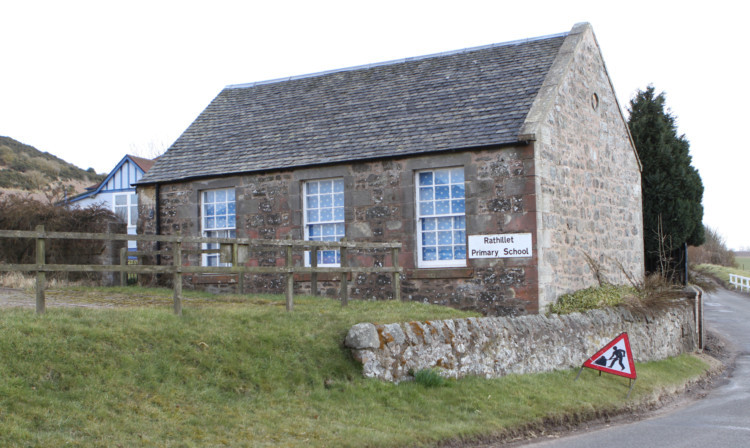Consultation on the closure of Fife schools is based on reports which are inaccurate, out-of-date and misleading, according to the opposition leader.
SNP leader, Councillor Peter Grant claimed documents detailing the proposals for closing seven of the region’s primary schools give an artificially negative impression of those under threat.
He said: “These reports are not fit to be issued to the public of Fife right now. We should send them back and make sure that the reports that go out are true, accurate, honest and up to date.”
Public consultation begins later this month on the controversial proposal to axe Wellwood, Crombie, Pitcorthie, Tanshall, Rathillet, New Gilston and Dunino primary schools and an eleventh hour debate was prompted by Mr Grant by using the call-in procedure to examine the executive committee’s approval of the contents of the reports for publication.
At a meeting of the education, social and communities scrutiny committee, however, the approval was endorsed.
Among the information Mr Grant criticised was that at Tanshall Primary School, in his ward, there was no disabled access, playground surfaces were poor and the grounds were used as a thoroughfare by pedestrians and motorists.
There was, he insisted, a stairlift, most of the playground was grassed and ideal for play and there was only one vehicle entrance, making use as a thoroughfare impossible.
He said: “If we agree to let the executive committee decision stand today, we are agreeing to endorse reports full of inaccuracies, based on studies three and four years out of date.”
He also said only benefits and not disadvantages of sending pupils to alternative schools were provided and that for Tanshall all benefits were based only on the creation of larger rolls at Caskieberran and Southwood schools.
The Glenrothes West and Kinglassie councillor said: “All of these reports are based on the assumption that a bigger school is going to be better.
“The leader of the council has said he doesn’t accept bigger schools are necessarily better and I agree with that.”
Fellow SNP councillor David Mogg claimed the reports were incomplete as they gave no indication of the impact of school closures on communities.
Education executive spokesman Councillor Bryan Poole dismissed the notion of a presumption within Fife Council that bigger is better and said: “That’s never been said either implicitly or explicitly by anyone and I want to draw a line under that.”
He also claimed Mr Grant had provided little information to back up his claim that the reports were inaccurate and that given the passage of time since information was collated, some of it was bound to be out of date.
Changes had already been made to the documents to address inaccuracies, he said, and “more than respectful consideration” would be given to inaccuracies highlighted during the public consultation.
Depute SNP leader, Councillor Brian Goodall proposed that community impact assessments be included in the consultation papers, councillors be given time to suggest amendments and corrections and the papers be referred to local area committees for input.
However, only his suggestions that information was time-referenced and additional information, such as building condition reports, be provided online were accepted by the committee as it endorsed the move towards consultation.
Education and learning executive director Ken Greer told the committee the format of the reports was constrained by legislation and said: “Communities will be anxious that the decisions made by the council are based on accurate information.
“As has been pointed out, issues move on, judgments made by services tend to be overtaken by events. In recognition of that, it has always been the case that insertions or corrections need to be made.
“If such issues are raised during the consultation period, there is a process for correcting those issues and taking account of them. If there are issues of that nature, it doesn’t end here.”
